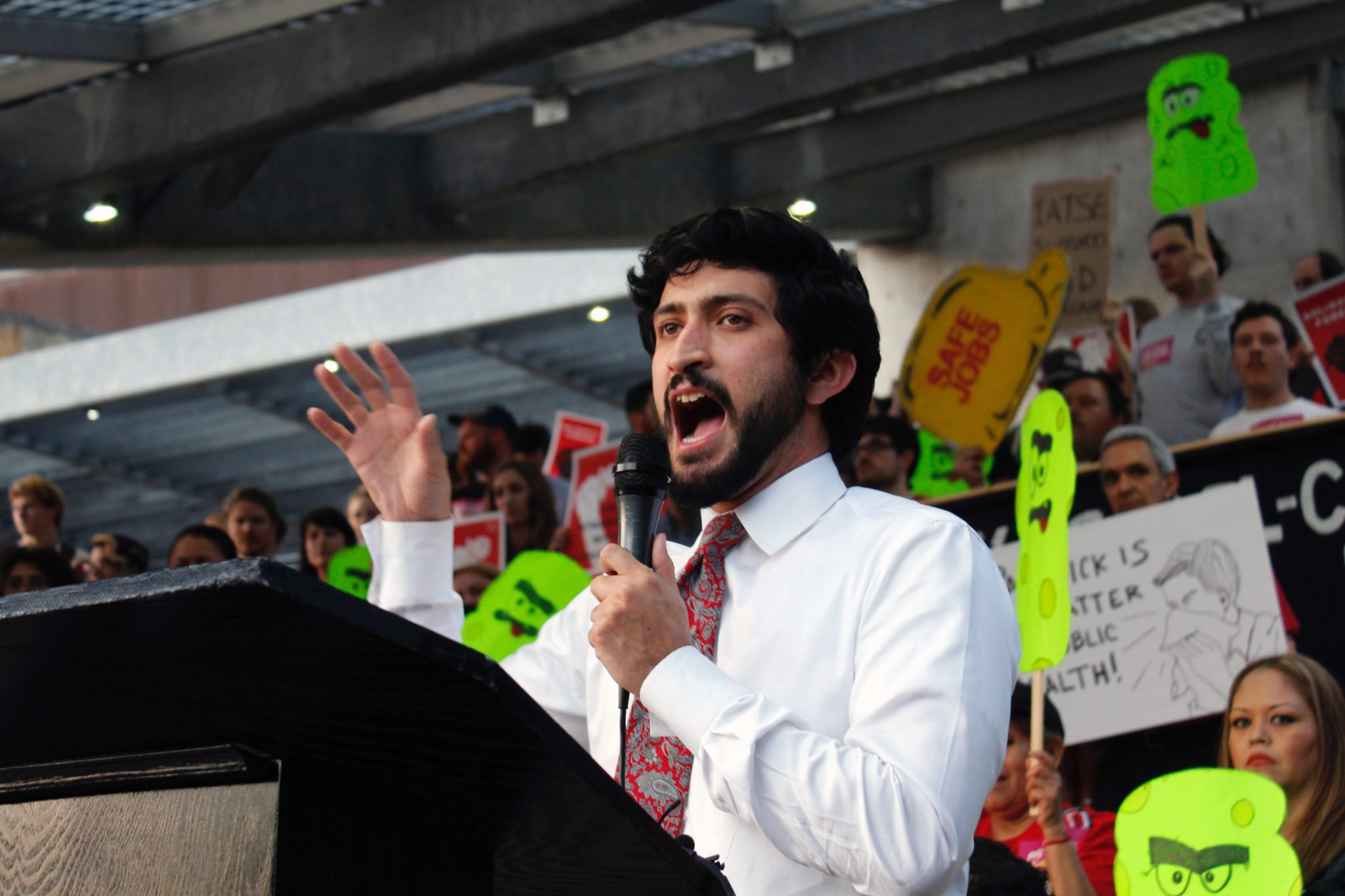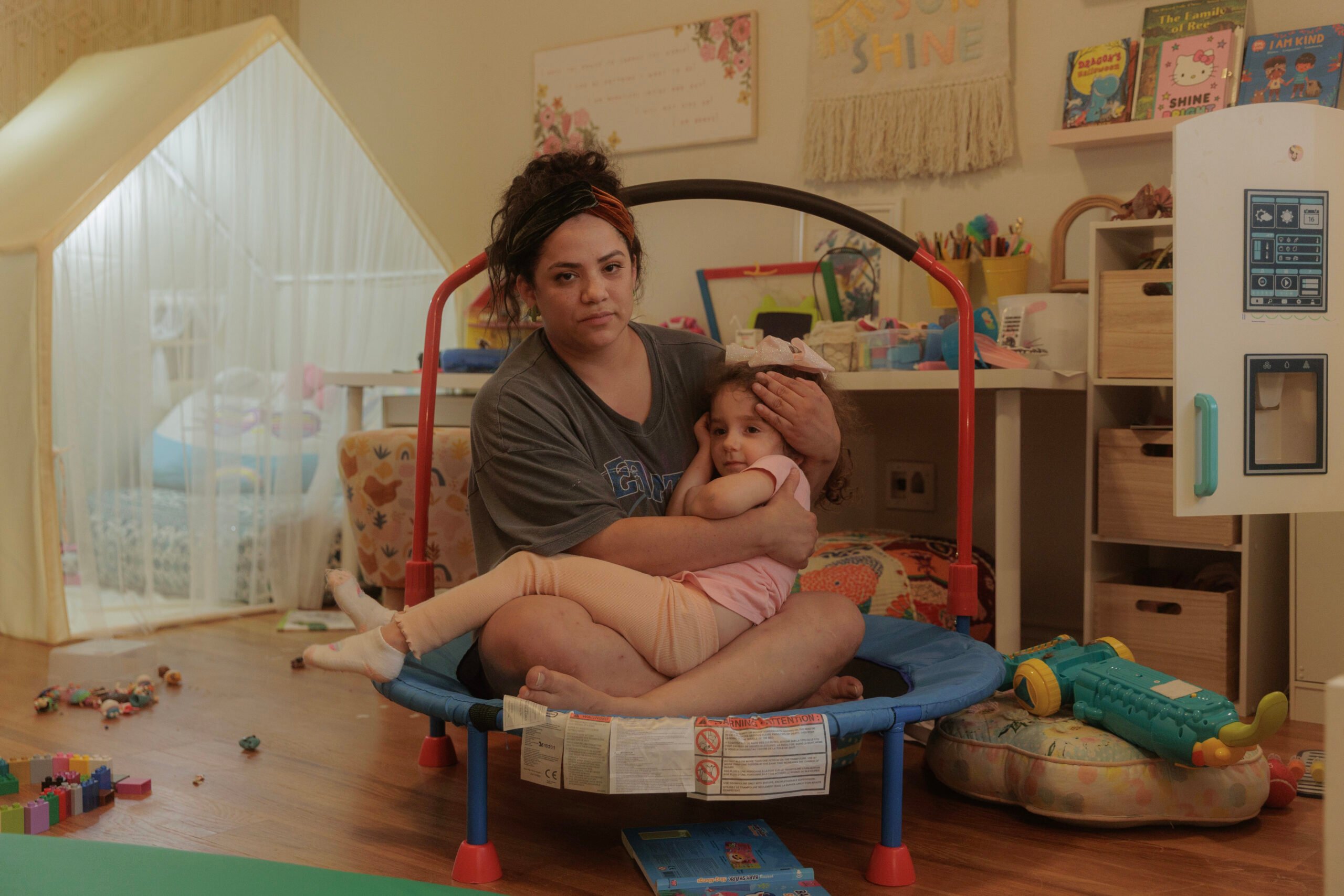
Austin Passes First Paid Sick Leave Policy in the South
After five raucous hours, the Austin City Council passed a policy providing paid sick leave to at least 87,000 Austinites. Council members say they hope other Texas cities will soon follow.

At nearly 1 a.m. on Thursday night, the Austin City Council passed a citywide, mandatory paid sick leave policy that will provide sick days to around 87,000 workers. After more than five hours of emotional testimony and debate, the proposal passed on a 9-2 vote, prompting thunderous applause from the raucous crowd and a rendition of the labor song “Solidarity Forever.” The measure is one of around 40 such policies in the country, but the first in the South.
“This is about widening inequality and fighting against it,” said Council member Greg Casar just before the vote, citing the disparities in life expectancy in different parts of Austin. “We have hardworking people in our community and structures in place saying you get 20 more years or you don’t, who lives and who dies, who has access to health care and who doesn’t.”
Casar, who led the sick leave effort, congratulated an “unprecedented coalition” for coming together to support the measure. “Without your organizing,” he told the crowd, “we would not be able to pass this and spread it across the state and eventually across the country.”
“Paid sick time is an extension of so many labor rights we have fought for in this country.”
The Austin ordinance will extend paid sick leave to at least 87,000 Austin workers, according to an analyst with the Institute for Women’s Policy Research. The measure mandates that employees receive one hour of paid sick leave for every 30 hours worked, capping at six or eight days annually depending on the size of the business. It takes effect for most employers on October 1, and is enforceable through fines of up to $500. Paid time-off can also be used to take care of family members and to address domestic or sexual violence. Casar pledged that the Council would soon apply the policy to city workers, too.
Supporters of the ordinance included labor leaders and rank-and-file union members, medical professionals, immigrant rights activists, socialists, policy wonks, reproductive rights advocates and a handful of business owners. About 300 people signed up to speak on the proposal. Some broke down in tears as they recounted times when they or their loved ones had to choose between accessing health care and paying rent; one woman shared her experience of losing wages after being raped. Supportive business owners said the policy would cost them little to nothing, and that it was important for sick workers to stay home, especially in the restaurant industry. Late into the night, the crowd rowdily applauded the ordinance’s champions and laughed and hissed at its opponents.
Bo Delp, policy director with Workers Defense Project, took aim at business owners who said they generally supported paid sick leave, but not the particular proposal. “Being supportive in theory does not prevent the spread of influenza, or allow a parent to stay home to take care of a kid,” Delp said. “Paid sick time is an extension of so many labor rights we have fought for in this country.”
Many groups are out here supporting #paidsickdays — including co-op businesses, research orgs, unions and reproductive rights groups. The two who seem to have mobilized the most people are @workersdefense and @austin_DSA. #atxcouncil
— Gus Bova (@bova_gus) February 16, 2018
Former state Senator Wendy Davis said paid sick leave was a feminist proposal. “This issue is about all people, but also uniquely about women,” she said, noting the issues of sexual violence, pregnancy and accessing abortion. And at least a dozen members of the Austin Democratic Socialists of America testified, a group that says it knocked on over 5,000 doors in the city since December in support of the ordinance.
On the other side of the issue, Rebecca Melancon, executive director of the Austin Independent Business Alliance, said she was “appalled” by a “divisive” and rushed process that had sidelined business owners. Prompting laughter from the audience, she said, “We look at this situation and we want to know who the workers are, because we feel like we are the workers.” Melancon presented a list of 137 Austin businesses she said were opposed to the ordinance, including local favorites such as Amy’s Ice Cream, BookPeople, Birds Barbershop and Juan in a Million.
The list initially included the local public radio station KUTX, accompanied by a single DJ’s name — which KUT managing editor Matt Largey called “nonsensical” on Twitter, pointing out that the station is part of a state agency. “The inclusion of @kutx followed by a DJ’s name on this list of *businesses* opposed calls the entire list into question,” he tweeted. AIBA later removed the station from the list.
Other opponents, mostly self-identified small business owners and Council members Ora Houston and Ellen Troxclair, generally complained about the process, saying it had been rushed. Some business owners told Council members that they were acting dictatorial toward them or defended themselves as ethical employers who, among other things, offer loans to their employees. “What is happening with this ordinance right now is making you look so bad,” said Carol Huntsberger, operator of Quality Seafood, who said she provides loans and clothing to employees but would be hurt financially by the proposal. “You’re telling me with this ordinance how to run my business; don’t do that.”
Ann Beeson, director of the Center for Public Policy Priorities, said the proposal will protect public health. Beeson said that around two-thirds of restaurant workers nationwide report that they have worked while sick, and that flu rates decrease about 7 percent in cities with paid sick leave policies. Jessica Milli, with the Institute for Women’s Policy Research, said the policy will actually save Austin employers around $4.5 million due to both lower turnover and the fact that most workers will use only a few days of leave annually. Milli said that other locales, including Connecticut and San Francisco, saw no or minimal impact on businesses after passing such measures.
“This is about widening inequality and fighting against it.”
Like many other progressive measures adopted by Texas cities, Austin’s paid sick leave ordinance will almost certainly face a challenge during the next state legislative session, which begins in January. The Texas Legislature has regularly undone popular local measures, often with bipartisan support, including a fracking ban in Denton and ride-sharing regulations in Austin and other municipalities. State Representative Paul Workman, R-Austin, has already pledged to file legislation to undo the sick leave measure, and the National Federation of Independent Business (NFIB), a Koch Brothers-backed lobbying group, has made a similar promise. “Certainly here in Texas, we will be pursuing preemptive legislation,” said Will Newton, Texas director for the NFIB. “It’ll be a priority.”
Mayor Steve Adler said other cities following Austin’s lead could be the key to defending the policy: “To citizens and residents in other cities and to other mayors around the state, I would say please join us.” Council member Delia Garza added she “couldn’t wait for our other big cities in Texas to follow our lead.”
Editor’s note: This story has been updated to reflect that AIBA removed KUTX from its list of businesses opposed to the sick leave ordinance. The updated list has been embedded in the story.


